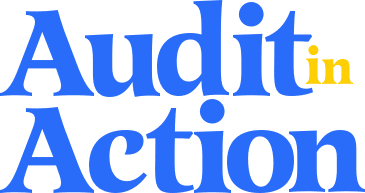Key Financial Reporting Trends in 2023: Mid-Year Update
Our corporate reporting ecosystem is constantly evolving, revealing new trends impacting the audit profession. In 2023, regulatory bodies have introduced new rules and regulations, and investors have vocalized their interest in more transparency in corporate reporting. Through it all, the US audit profession remains prepared to adapt and maintain audit quality. It’s what we do best.
The Center for Audit Quality (CAQ) is committed to helping all members of the public company auditing profession identify and navigate the latest trends. With the first half of the year behind us, what have we learned so far in 2023? Keep reading for key insights about public companies and the profession.
Economic Issues Impacting Public Companies
Gaining deep knowledge of the industries they work in gives auditors an understanding of how to oversee and execute high-quality audits. In their public interest role, auditors build investor trust and confidence in the company-reported information that allows our capital markets to flourish.
As part of our Spring 2023 Audit Partner Pulse Survey, we asked audit partners from some of the country’s leading public company audit firms about the economic risks facing companies and how they are adjusting. Our results revealed that 69% of audit partners see inflation as the largest economic risk to companies in their primary industry sector, followed by cybersecurity (39%). However, our Spring survey reports a slightly better outlook on the next 12 months of the US economy, with only 38% of audit partners pessimistic about the economic outlook compared to 57% in our Fall 2022 survey.
As emerging technologies and innovations continue to raise new questions about security, cybersecurity preparedness is another vital challenge for public companies. Nearly seven in ten audit partners (68%) said companies were moderately prepared to identify and address a cyberattack, up from 65% in our Spring 2022 survey.
Labor shortages were the top economic risk for 35% of audit partners and the accounting profession has not been immune, emphasizing the need for the accounting profession to build a strong, diverse talent pipeline. The CAQ’s Accounting+ initiative is designed to help provide a solution by showing students of color how they can pursue rewarding careers in accounting.
Emerging Financial Reporting Landscapes
Investors and other stakeholders are increasingly focused on other areas of company-reported information, such as climate information or workplace diversity. According to the CAQ’s most recent analysis of the S&P 500, nearly all public companies now report some form of climate information, and 47% of audit partners in our Spring 2023 survey reported that companies in their industry sector are enhancing disclosures in this area.
The US Securities and Exchange Commission (SEC) also plans to introduce its first climate-related rule for public companies. The CAQ submitted a comment letter to the agency with our support for requiring certain registrants to subject Scope 1 and Scope 2 greenhouse gas (GHG) emissions disclosures to attestation. We also expressed the need for a globally accepted climate reporting system built from existing standards and frameworks to bolster investor confidence in these disclosures. And this month, the International Sustainability Standards Board (ISSB), launched its first two sustainability disclosure standards, a significant milestone on the path to delivering a comprehensive global baseline of sustainability-related financial disclosures that will bring investors consistent, comparable sustainability-related financial information.
Technology such as artificial intelligence (AI) is redefining the future of financial reporting, audit, and risk management. Many firms are already using AI to standardize and streamline audit work to deliver high quality audits and remove many of the rote day-to-day tasks that auditors must complete, and firms are also making significant investments in new AI systems.
Companies continue to engage with digital assets to streamline their business processes, but these innovations present new risks. In particular, audit committees may need to supervise how public companies use digital assets and ensure effective risk management is in place. As part of their oversight duties, audit committee members can transfer their skills to this new area of financial reporting and help organizations prevent and mitigate challenges. The CAQ continues to monitor other emerging trends and how the audit profession can respond.
An Effective Financial Reporting Ecosystem
Each July, we commemorate the anniversary of the Sarbanes-Oxley Act (SOX), landmark legislation that strengthened financial reporting and audit quality. The law, signed on July 30, 2002, established key provisions that remain relevant today.
SOX created the Public Company Accounting Oversight Board (PCAOB), a new regulatory body with the authority to set standards for auditors of public companies, enhance auditor ethics, and more. It also required independent audit committees for all listed companies and gave them the direct responsibility to appoint, compensate, and oversee the external auditor.
The legislation also strengthened auditor independence, one of the cornerstones of audit quality. It is critical that the interests of the external auditor are independent of the company to underpin the credibility of the audit.
While the audit profession continues to face new and ongoing challenges, their role in providing the capital markets with reliable, trustworthy information through high-quality audits has never been more important. Make sure to subscribe to the CAQ to stay up-to-date on the breaking developments impacting financial reporting and our capital markets.
